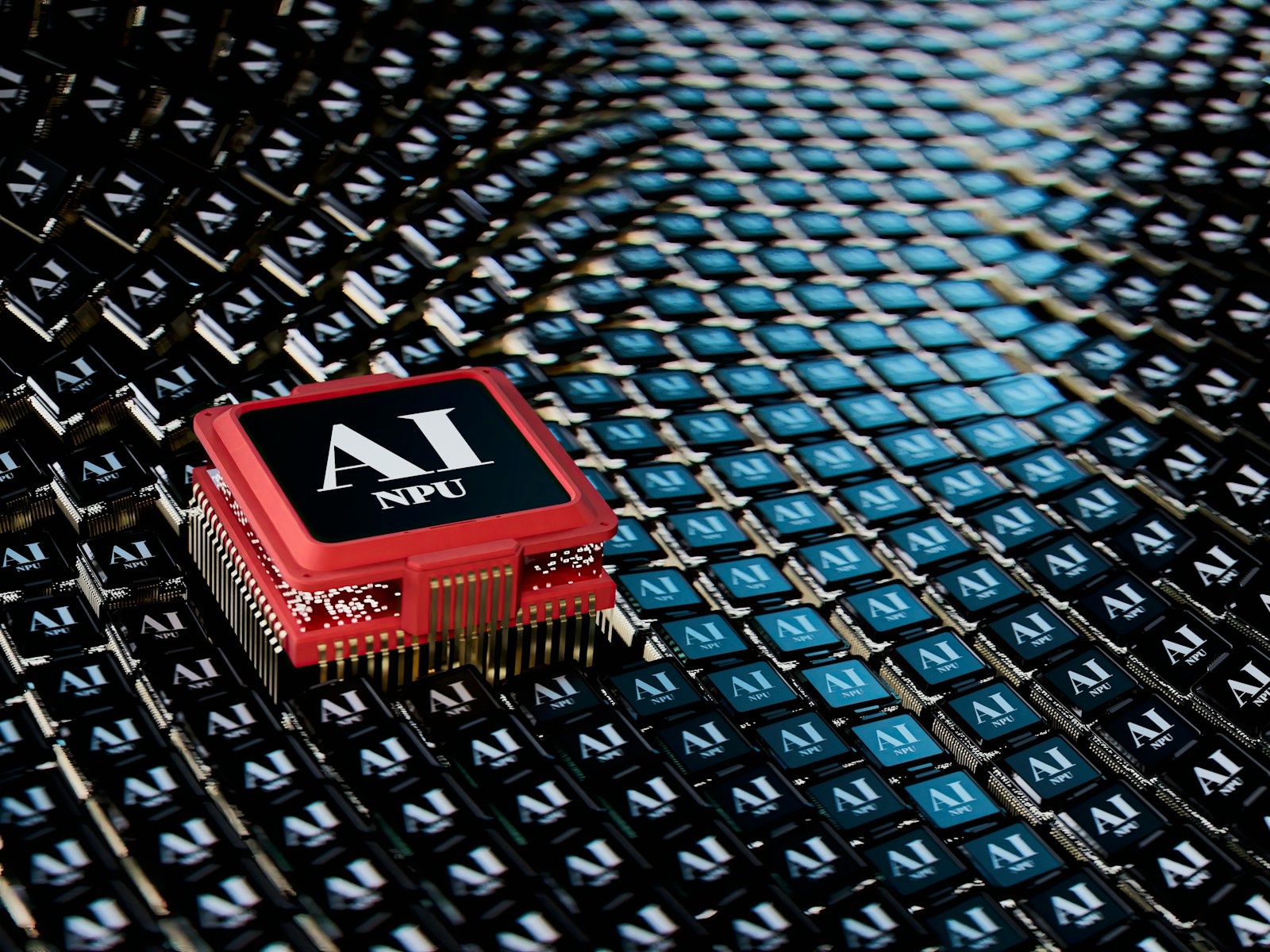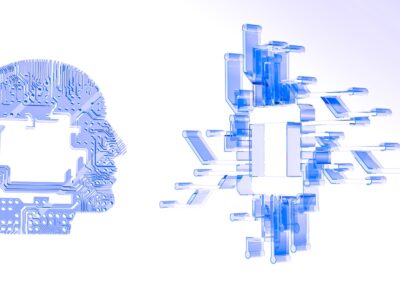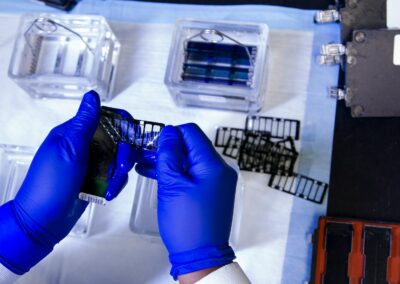Introduction to the Future of Human Evolution with AI
The future of human evolution with AI involves considering the ethical implications of designing and modifying human traits through artificial intelligence. As AI technology advances, it opens new possibilities for enhancing human capabilities and addressing various health and cognitive challenges. However, the potential to design and modify human traits raises significant ethical questions that must be carefully navigated.
In regions like Saudi Arabia and the UAE, where technological innovation is driving economic growth and development, understanding the ethical implications of AI-driven human enhancement is crucial. This article explores the future of human evolution with AI, focusing on the ethical considerations and opportunities that this transformative technology presents. Business executives, mid-level managers, and entrepreneurs in dynamic cities such as Riyadh and Dubai must be aware of these issues to make informed decisions and leverage AI responsibly.
The Potential of AI in Human Trait Modification
AI has the potential to revolutionize the field of human trait modification, offering unprecedented opportunities for enhancing physical and cognitive abilities. From improving athletic performance to boosting intellectual capabilities, AI-driven genetic and neural modifications could lead to a new era of human evolution. This potential is particularly relevant in healthcare, where AI can be used to treat genetic disorders, enhance cognitive functions, and prolong life.
For instance, AI-driven genetic editing technologies, such as CRISPR, can be used to modify genes associated with various diseases, potentially eradicating genetic disorders. This technology can also be applied to enhance physical traits, such as muscle strength and endurance, which could benefit athletes and individuals in physically demanding professions. Similarly, AI-powered neural enhancements can improve cognitive functions, including memory, attention, and problem-solving skills, offering significant advantages in academic and professional settings.
However, these advancements also raise ethical concerns. The ability to modify human traits challenges traditional notions of human identity and authenticity. It raises questions about the potential for creating a divide between enhanced and non-enhanced individuals, leading to new forms of inequality. Furthermore, the long-term effects of genetic and neural modifications are still unknown, posing risks to individuals and future generations.
Ethical Considerations in AI-Driven Human Enhancement
The ethical considerations surrounding AI-driven human enhancement are complex and multifaceted. One of the primary concerns is the issue of consent. Modifying human traits, particularly through genetic editing, involves making decisions that can affect future generations. This raises questions about the rights of individuals to make irreversible changes to their genetic makeup and the potential consequences for their descendants.
In addition to consent, the potential for inequality and discrimination is a significant ethical concern. AI-driven human enhancement technologies could exacerbate existing social inequalities, creating a divide between those who can afford enhancements and those who cannot. This could lead to a new form of social stratification, where enhanced individuals have significant advantages over non-enhanced individuals in various aspects of life, including education, employment, and social status.
Privacy and data security are also critical ethical considerations. The use of AI in human enhancement involves collecting and processing vast amounts of personal and genetic data. Ensuring the privacy and security of this data is essential to protect individuals from potential misuse and breaches. Robust regulatory frameworks and data protection measures are necessary to address these concerns and ensure the responsible use of AI-driven human enhancement technologies.
Opportunities and Challenges for Business Leaders
For business executives, mid-level managers, and entrepreneurs, the future of human evolution with AI presents both opportunities and challenges. Embracing AI-driven human enhancement technologies can lead to significant competitive advantages, driving innovation and productivity. Enhanced cognitive and physical abilities can improve decision-making, leadership skills, and overall performance, benefiting organizations in various industries.
In dynamic business hubs like Riyadh and Dubai, leveraging AI-driven human enhancement can support the development of a highly skilled and competitive workforce. This can attract investment, foster innovation, and drive economic growth. Executive coaching services can also benefit from AI-driven enhancements, offering personalized training and development programs tailored to the specific needs and abilities of individuals.
However, business leaders must also navigate the ethical challenges associated with AI-driven human enhancement. Ensuring that enhancements are used responsibly and equitably is crucial to avoid exacerbating social inequalities and discrimination. Business leaders must advocate for ethical guidelines and regulatory frameworks that promote the responsible use of AI-driven human enhancement technologies.
Conclusion: Navigating the Future of Human Evolution with AI
In conclusion, the future of human evolution with AI involves significant ethical implications that must be carefully considered. While AI-driven human enhancement offers unprecedented opportunities for improving physical and cognitive abilities, it also raises complex ethical challenges related to consent, inequality, privacy, and data security.
In regions like Saudi Arabia and the UAE, where technological innovation is a key driver of economic growth, addressing these ethical challenges is particularly important. Business executives, mid-level managers, and entrepreneurs must be aware of the potential implications of AI-driven human enhancement and advocate for responsible and equitable use of this technology. By establishing clear ethical guidelines, investing in data security, and fostering a culture of ethical awareness, organizations can harness the potential of AI-driven human enhancement while mitigating potential risks. Through collaboration and continuous dialogue, we can ensure that the development and use of AI-driven human enhancement technologies align with societal values and contribute to a future where technology enhances human capabilities in a responsible and ethical manner.
—
#AIEthics #HumanEvolution #ArtificialIntelligence #GeneticModification #HumanTraits #AITechnology #FutureOfAI #SaudiArabia #UAE #Riyadh #Dubai #AIinHealthcare #CognitiveEnhancement #EthicalConsiderations #BusinessInnovation #LeadershipSkills #ProjectManagement































